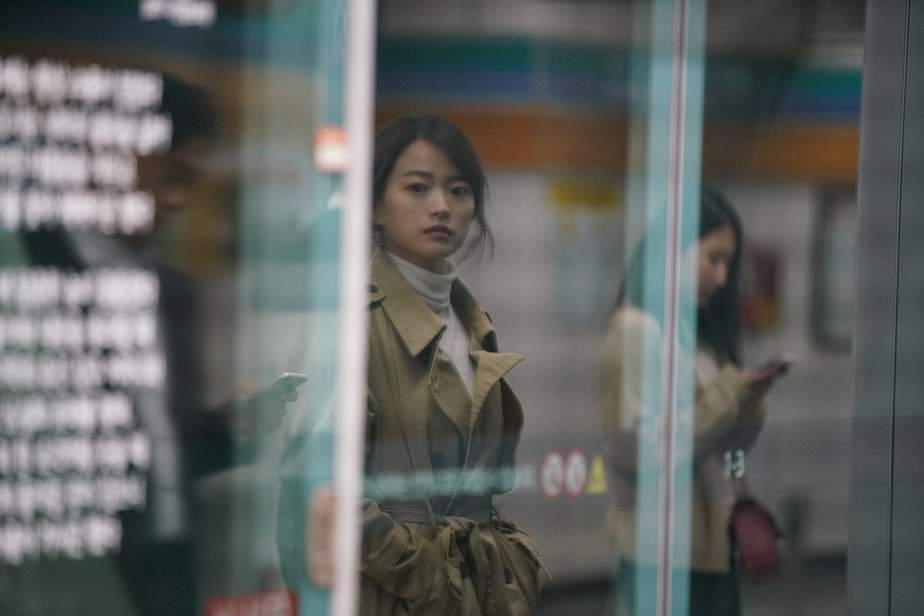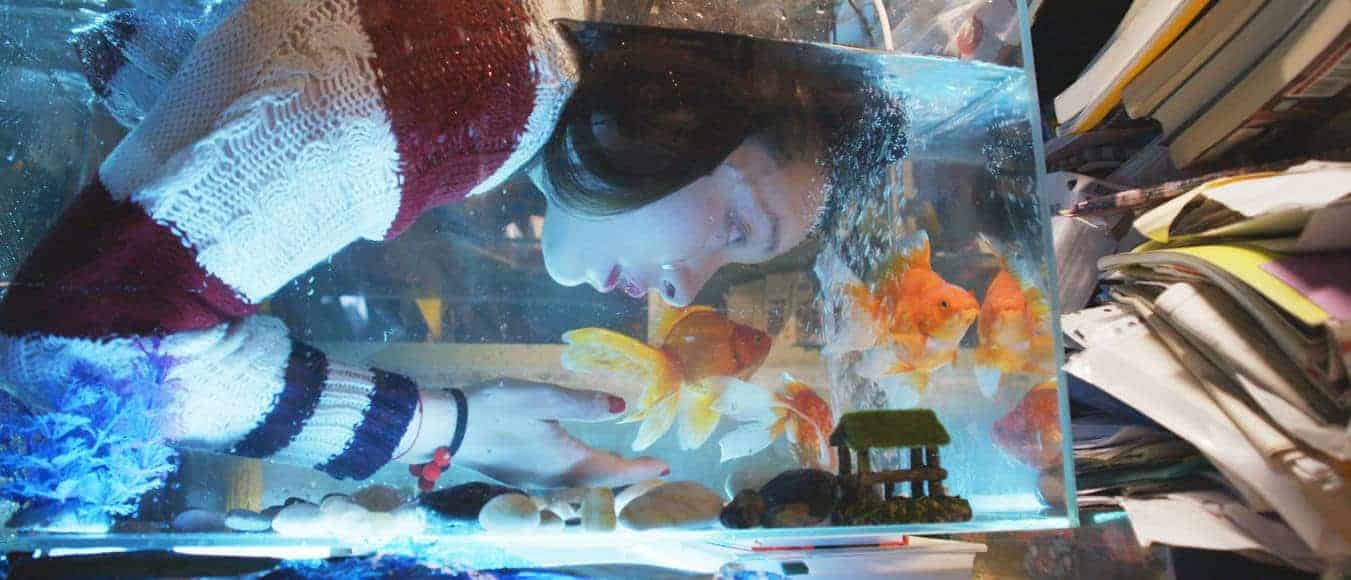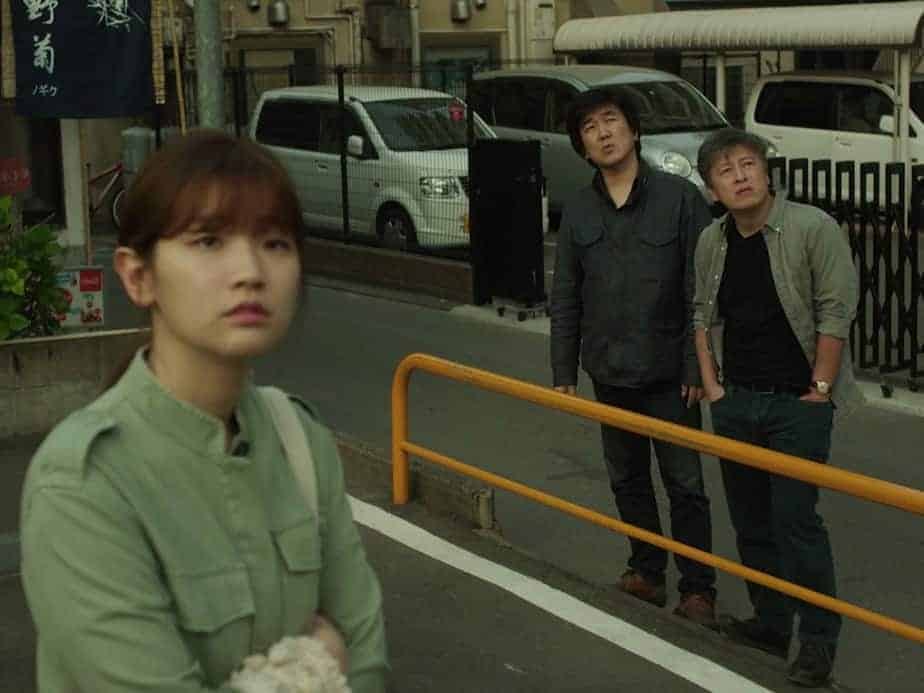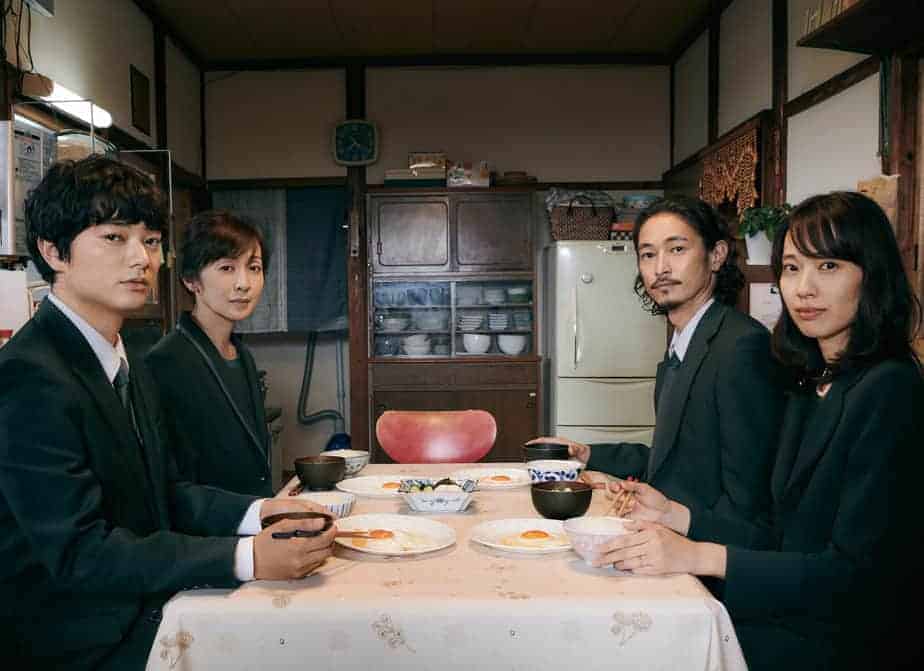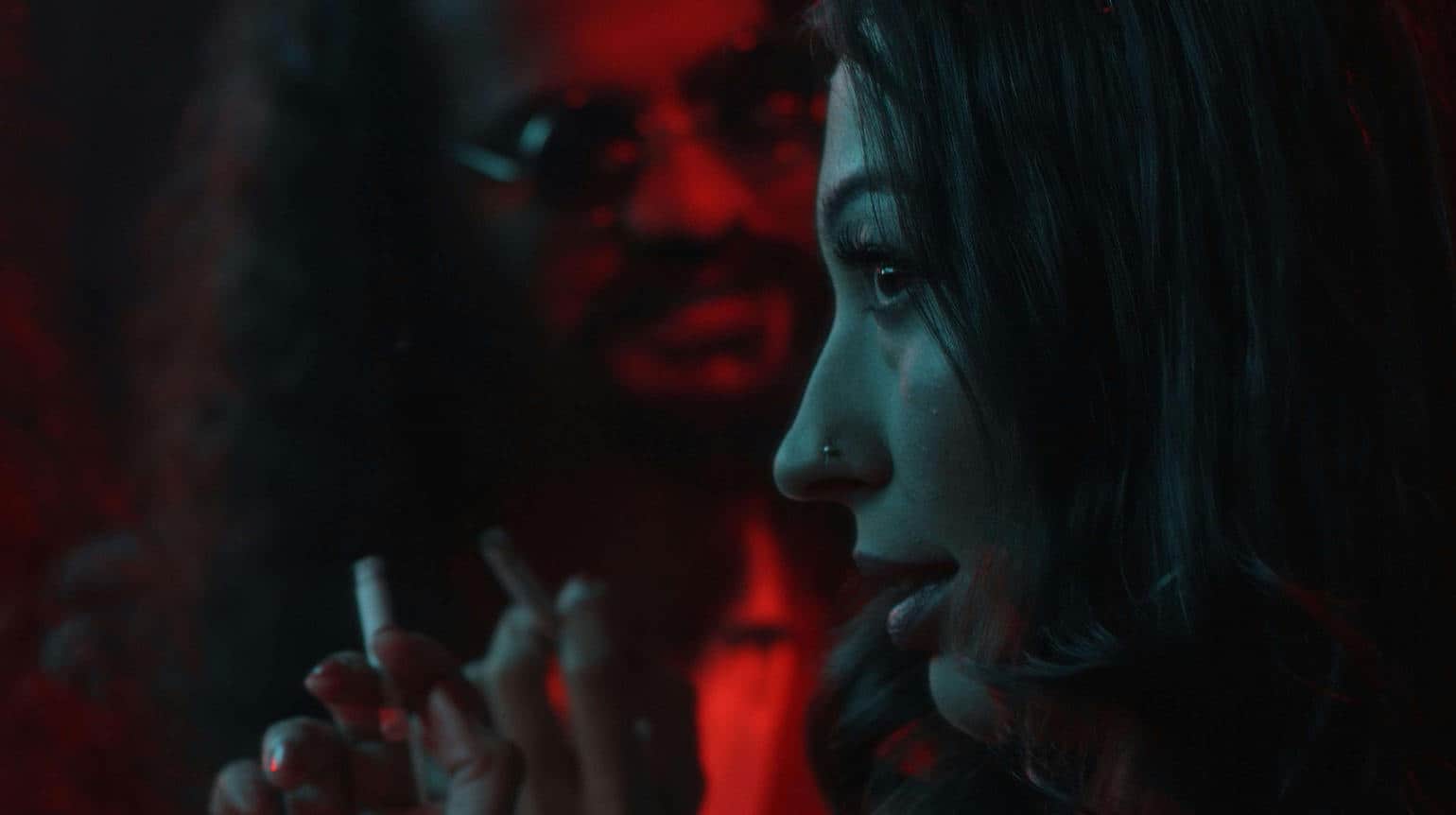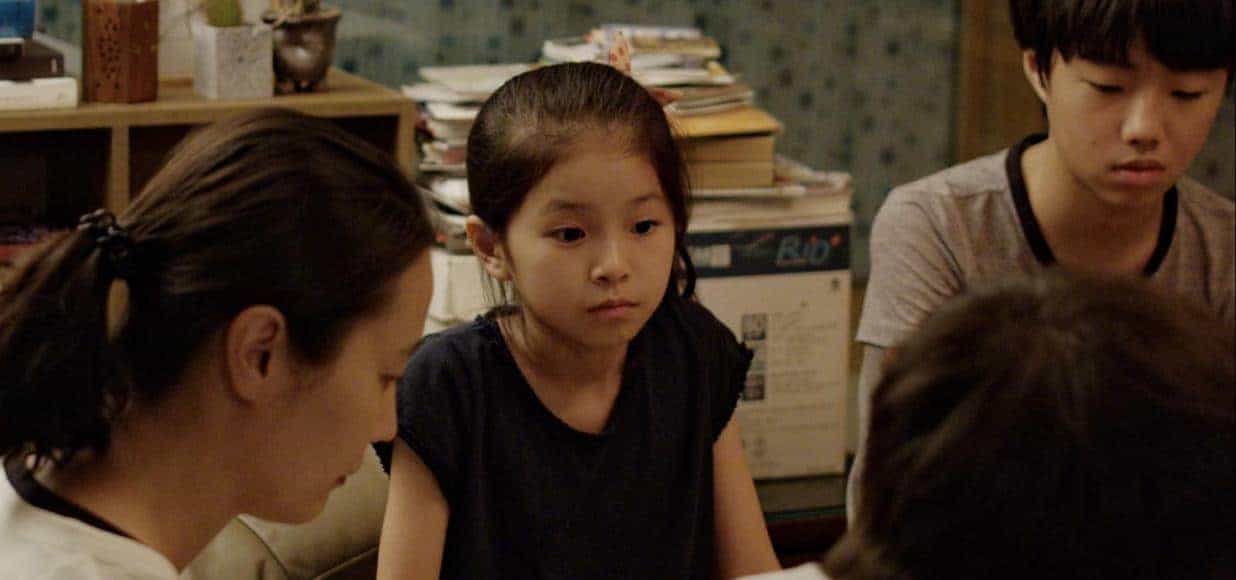Jeon Gye-soo's latest film, coming eleven years after the Ha Jung-woo and Gong Hyo-jin starring romantic melodrama “Love Fiction”, is a romance set in the dizzying heights of South Korean corporate culture, starring Chun Woo-hee in the leading role. “Vertigo” premiered at the Busan International Film Festival last year, before a nationwide release in the tail-end of last year.
“Vertigo” will screen at the next edition of Asian Pop-up Cinema, during the fall.

Seo-yeong works as a designer in a corporate company, whose office is located high up in a high-rise building. She appears to be in a happy place in life, doing well at her job at a time when her contract is up for appraisal and renewal, and is in a secret relationship with one of her superiors at work, a very good-looking man who most women in her office are crazy for. The only troubles she seem to be having are her mother, who is going through a rough patch of her own financially and in her relationship with her partner, and an incessant problem in her ear, which gives her intense bouts of vertigo that get triggered by the smallest things. Just when her boyfriend seems to put some distance between them for reasons Seo-yeong cannot comprehend, into her life dangles Gwan-woo, a window cleaner working outside her office building who takes a shine on Seo-yeong.

“Vertigo” primary is a tremendous exposé of the corporate culture in modern South Korea, particularly the position of women in it. Its depiction of the corporate workplace environment and the fears and pressures the staff feel because of it, trying to keep up a prim and proper physical appearance and picking up skills they otherwise have no interest in lest they lose their job to somebody who does, is very realistic. So realistic, in fact, that its extremely depressive and pessimistic nature makes one feel for those having to survive in it on a day-to-day basis in real life. Equally realistic is the depiction of the effects of vertigo on those that suffer from it, with Seo-yeong's dizzy spells being triggered by the slightest vibrations, shrill sounds or heights.
There is also an interesting commentary on social and economic standings in society. Seo-jeong and Gwan-woo are two people from vastly different social and economic circles and there is almost always an impenetrable glass wall between the two that neither can cross. When Gwan-woo does indeed once try to cross in through the main door, he gets swiftly reprimanded for it and gets shown his rightful place. His attempts to literally break the glass separating them, in another integral scene nearer to the end, amount to nothing. It is only when Seo-yeong decides to confront her vertigo head on and literally goes over the glass window separating them that the two characters find any possibility of so much as a conversation with each other.
The secret office romance between Seo-yeong and her senior Jin-soo is also well realised, so when the big twist comes later in the film, it truly leaves the viewers reeling, just like it does Seo-yeong. A fair amount of credit for that also goes to the handsome Teo Yoo's portrayal of Jin-soo. The second love story between her and the window cleaner, however, is slightly more problematic. Just like “Love Fiction”, “Vertigo” tends to get needlessly too melodramatic, particularly when it comes to Gwan-woo's backstory. His affection for Seo-yeong also comes across as borderline stalker-ish. If it were not for the progression it brings to Seo-yeong's character, or for the unique juxtaposition of a vertigo-suffering individual finding comfort in someone who literally dangles his life high up above the city every time he goes to work every day, the character could come across quite irritable and unlikeable, despite actor Jung Jae-gwang's earnest efforts in a role that doesn't have many dialogues but a range of emotions.
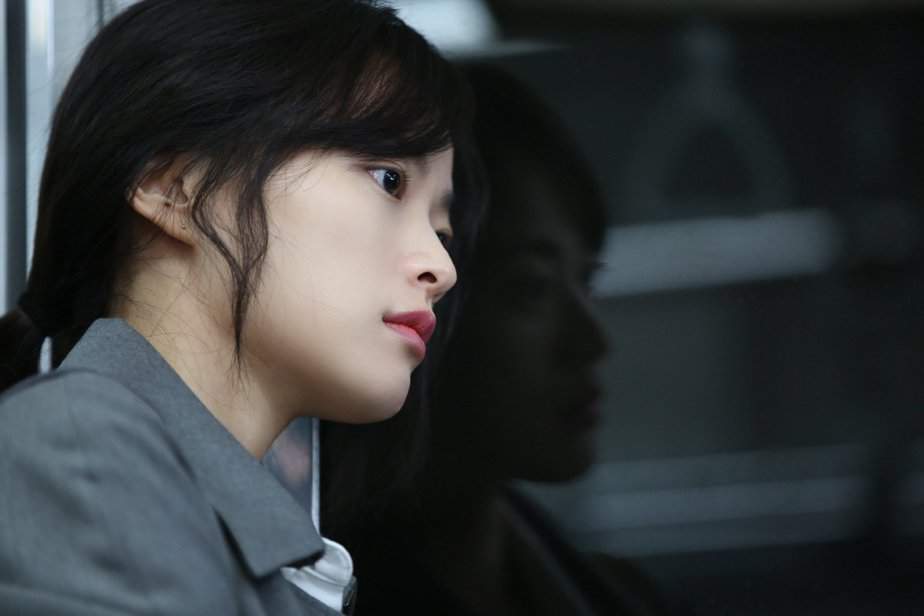
Chun Woo-hee has had a brilliant career that is highlighted by some very unique and rather “unsafe” project choices and is an actress I count among my personal favourites. This, yet again, is a very interesting choice of project for her which shows that, like in “Han Gong-ju”, she is just as adept at leading roles as she is at being an integral part of an ensemble cast, as in “Cart”, “Thread of Lies” or “The Wailing”. The sweet, loving looks that she gives Jin-soo change to sadness when he tries to avoid meeting her and utter confusion, dejection and then sadness when the big twist is revealed with effortless ease for her. The dread she exudes in another important scene near the end feels genuine, as does her embodiment of every vertigo victim ever.
From the very first frame, “Vertigo” is gorgeous to look at, thanks to Lee Sung-eun's cinematography. From the the opening shot on the pier, the scene where Seo-yeong and Jin-soo have sex shortly after with the city backdrop or the interior and exterior shots of the office building, there is immense beauty throughout the film, even without the fetching trio of actors in the frame. The use of various camera techniques and movements and sound mixing makes for an effective representation of the symptoms of vertigo.
Like “Love Fiction” before it, “Vertigo” is a genuinely very good film of its genre. Just like “Love Fiction”, however, “Vertigo” too stops just short of greatness because of its inclusion of melodrama where it doesn't need it.


